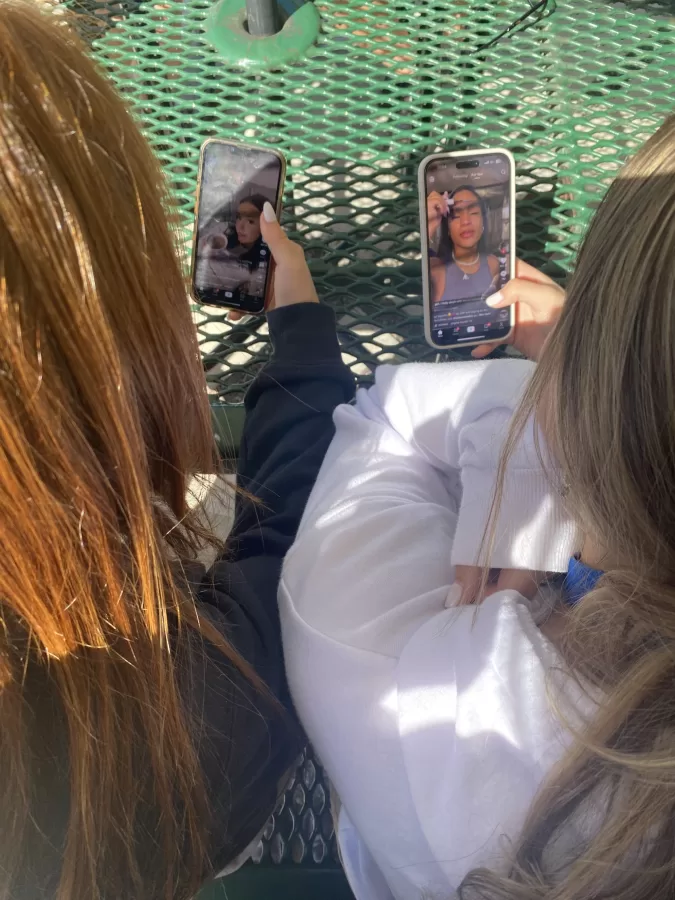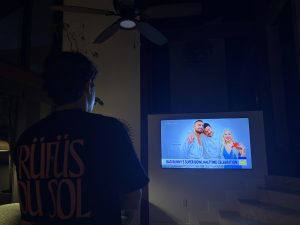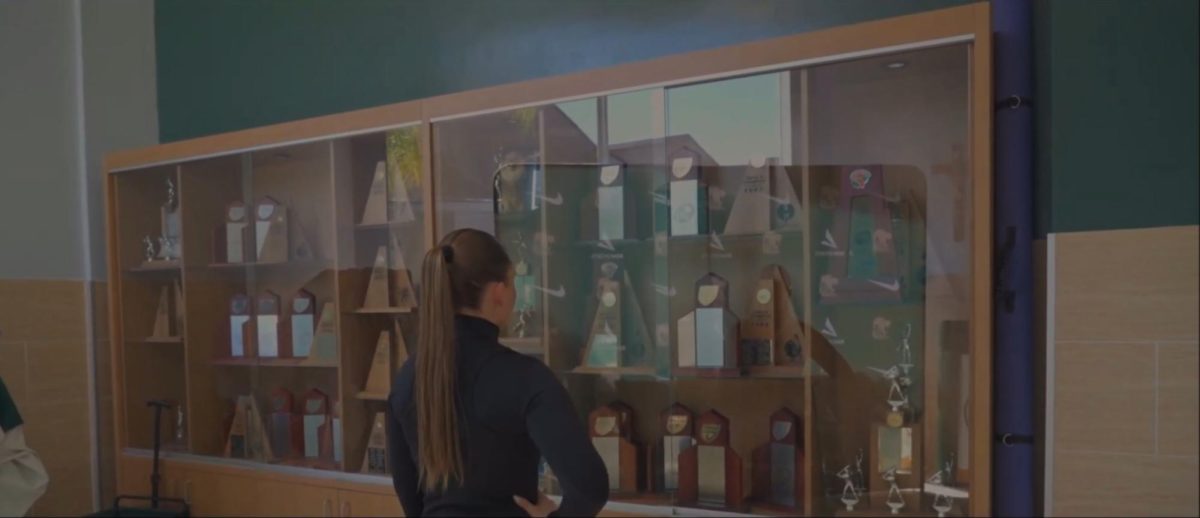Break Up With TikTok
Juniors Aubree Arango and Mia barbacci scrolling through TikTok.
January 19, 2023
TikTok has made a name for itself as the fastest growing social media platform to date. Each month TikTok has 800 million active users. Globally, children spend an average of 75 minutes per day on TikTok, which makes it the social media platform most used. In spite of its popularity, the popular social media app is causing more harm than users realize.
In order to keep users engaged, TikTok has figured it out. The app uses manipulative user experience (UX) design to keep users mindlessly scrolling. It is built to trigger compulsive use, which is especially more powerful for impressionable audiences such as teenagers.
As soon as you open the app, TikTok has you locked in. The app takes you to its “For You Page” where it shows videos that the platform believes you will relate to or find interest in. TikTok knows exactly what you are seeing and how many seconds you stop on each video. It will then select videos for you that can intrigue you in a similar way, keeping you entertained.
Features such as these are linked to triggering addictive behaviors. Different from Twitter or Facebook, the user can’t scroll up fast and jump a few videos. No matter how forceful your scroll is, you are going to be shown the next video TikTok has selected for you. After viewing a video you like, you get a dopamine hit in your brain. This makes it hard to stop scrolling until you find another enjoyable video to get more dopamine, in psychological terms called intermittent reinforcement.
“It feels like every time I go on TikTok to quickly check on a video or to use the app for a couple of minutes, I end up staying on it for hours… like two or three hours. I always end up disappointed in myself for wasting so much time on the app but really it feels like I can’t help myself,” said senior Brianna Davis.
An app being addicting isn’t something most people want to believe. Common symptoms of addiction are an inability to stop using, negative health effects, and obsessive behavior, traits many users may experience while on the app.
“My daily routine is usually getting back from school and laying in bed scrolling on TikTok. I don’t even know what half the stuff I’m watching is but for some reason I can’t look away. I feel like the app has so much useful information but more than that has a lot of useless, irrelevant information,” said junior Juan Martin.
Unplugging from social media as a whole has been shown to improve productivity, allow opportunity for new hobbies, mindfulness, and sleep quality. Cutting out TikTok alone can save most users 2.5 hours of screen time.
TikTok not only capitalizes on users’ attention, time, but also personal data. With the app’s largest audience being the most impressionable teenagers, the privacy concern TikTok has is often disregarded. Many reports have emerged in the past few months indicating that TikTok is collecting large amounts of user data. To some being entertained and on top of trends is more important than their data being collected.
The Pentagon recently released a strong suggestion to all service members advising them to delete the popular social media app from their smartphones. Over the past five weeks, nearly two dozen state governors and officials have implemented government restrictions of TikTok in their states. These bans should concern users.
Users can either limit their time on the app or become aware that the content they are consuming may be harmful.
Unfortunately, these actions take considerable self control and may be difficult to do, so deleting the app is a chronic user’s best bet.

















